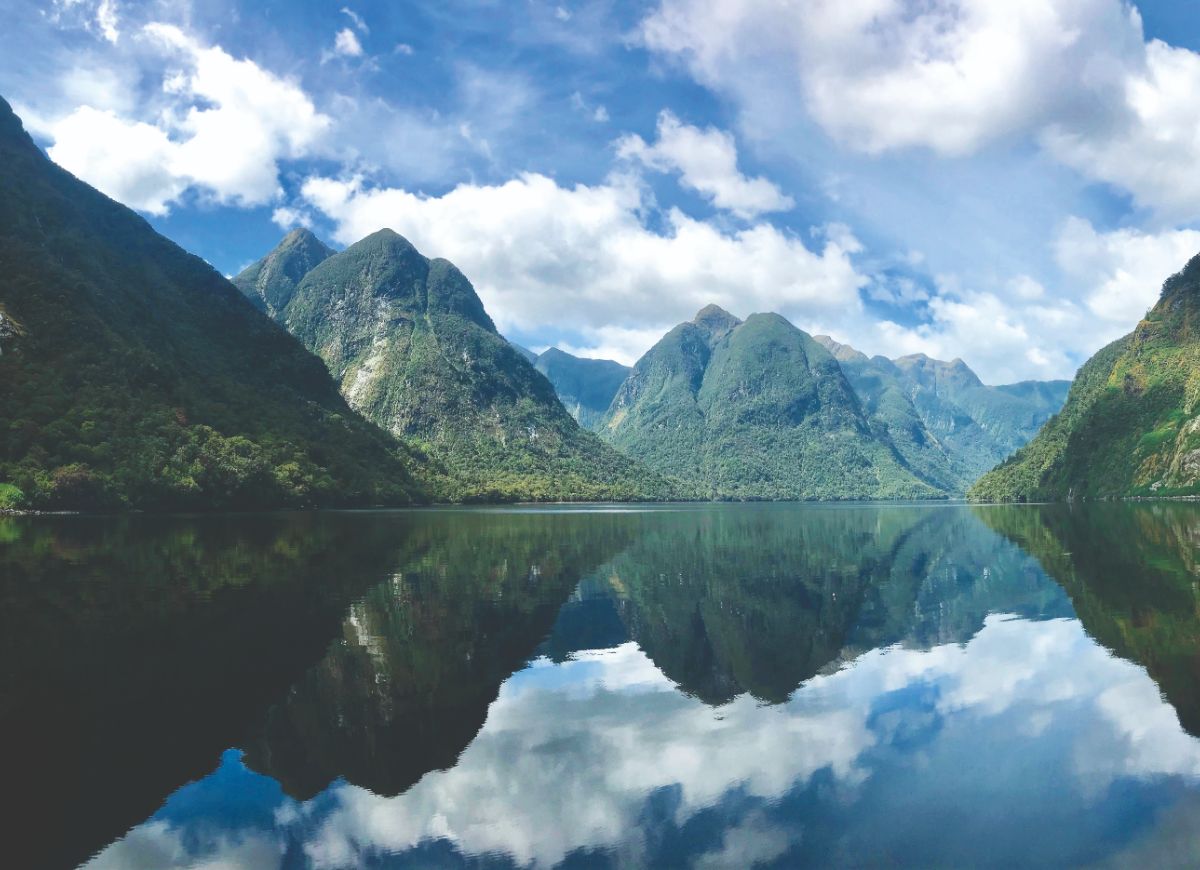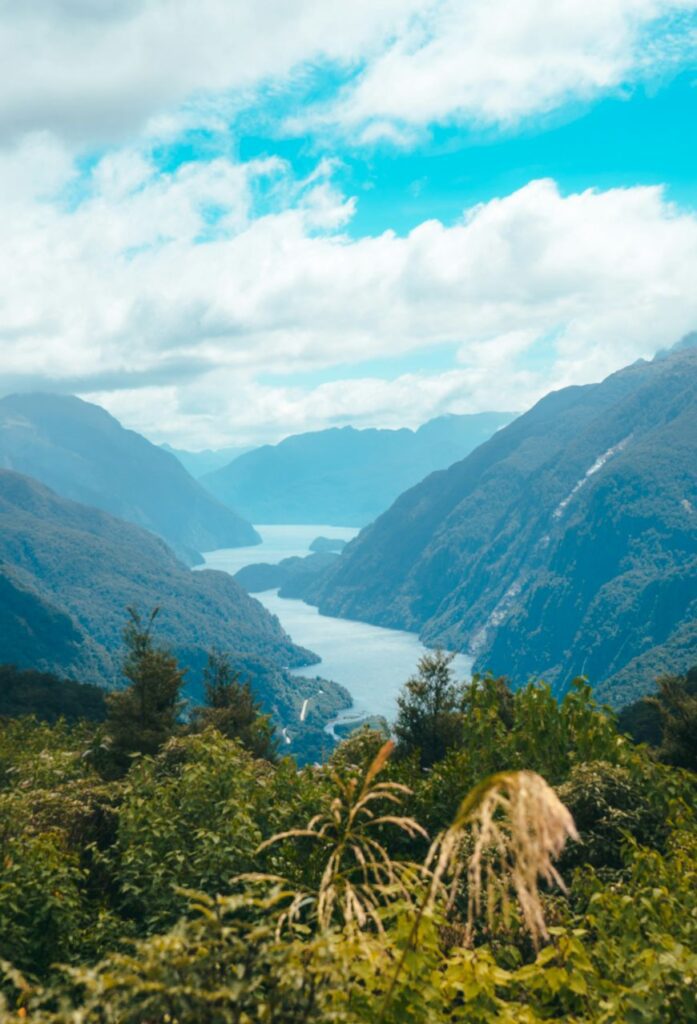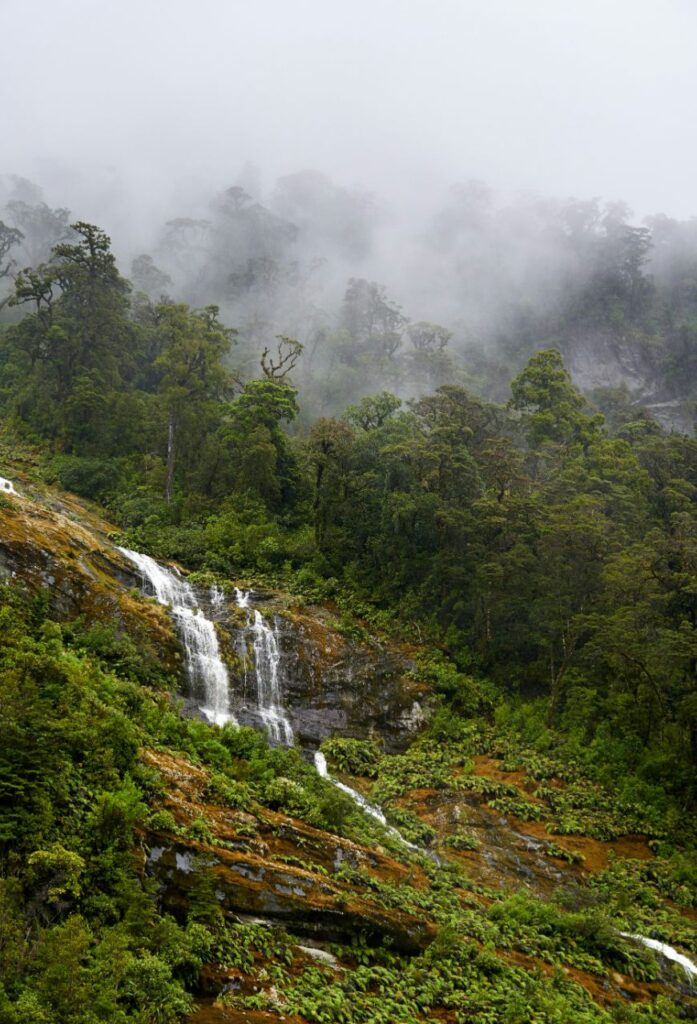Oceania Countryside, Sport & Adventure
Contemplate the stillness at New Zealand’s ‘Place of Silence’

Experience the epitome of peace and quiet at New Zealand’s spectacular, and ultra-remote, Doubtful Sound, known as the ‘Place of Silence’
Your boat slices through the waters, sending out ripples that shatter the reflection of mountains mirrored on its surface. Conical peaks frame the view ahead: a tree-capped island that rises from the sparkling water. All is still, other than the odd fur seal breaking the surface before disappearing. This pristine ribbon of water, which meanders through Fiordland National Park to the Tasman Sea, is Doubtful Sound (Patea). The second-longest of New Zealand’s fjords at 40km, it echoes the beauty of its more famous counterpart, Milford Sound (Piopiotahi), but its remoteness inspires a different kind of awe.
Into the wild
The fjord was nicknamed ‘Doubtful Harbour’ when Captain Cook hesitated to navigate into the inlet, fearful that westerly winds would prevent him from sailing back out. But before Western settlers ever inspected these shores, Maori people dubbed the fjord Patea, ‘the place of silence’. Reaching this unspoiled wilderness is neither quick nor easy. From Manapouri town (population 222), you board a boat that chugs past heart-shaped Pomona Island and along the western arm of Lake Manapouri. From here, you step onto a bus going west through Wilmot Pass, climbing high to an overlook above the sound’s gleaming silver surface. Finally, you reach Deep Cove, the southernmost tip of Doubtful Sound, where this serene odyssey truly begins.
Water, water everywhere
As your boat plies the waters, the only sounds are the swish of the bow moving through water, and the soft roar of waterfalls that drop down from high cliffs. There isn’t a single settlement for more than 200km in either direction. You’ll first see Helena Falls, a white ribbon careening for 220m down a cliff face. Further along, as you approach Hall Arm, a southerly spoke of Doubtful Sound, the 619m Browne Falls makes a dramatic cascade during springtime. Even without spring snowmelt, Doubtful Sound’s forested cliffs and islands are a proliferation of green, fed by up to 6000mm of rainfall per year. Wildlife is abundant, too: you might spot plump fur seals snoozing on the rocks and Fiordland penguins with oversized yellow eyebrows that give them a permanent frown.


Beneath the surface
Larger mammals thrive here, too: the occasional obsidian- coloured fin of a humpback whale cleaves the surface of the water. It’s a reminder that below the waterline, Doubtful Sound is anything but silent. Though impossible to hear from your boat, the mournful song of humpbacks mingles with chirruping bottlenose dolphins and the thump-like sound of minke whales. These creatures play above a forest of black coral, where starfish wink out from the rocks and sea anemones pulsate. It’s humans who fall into reverent silence here; nature plays on.
This article is an extract from Lonely Planet’s 2024 The Joy of Quiet Places and was reproduced with permission from Lonely Planet. lonelyplanet.com
Q&A
Just how silent is this ‘place of silence’?
There is simply no unnatural noise, it’s truly the sound of nature. The inner arms of the fjord are calm, and the mountains reflect beautifully on the water.
Tell me about your first visit
It was 30 years ago. This single journey inspired me to move to Fiordland and develop a career around living in this wild place. The scenery is stunning, wildlife abundant, and most of all, time stands still, enabling time to reflect. The environment is spectacular, regardless of the weather. It’s truly an untouched wilderness and a unique experience.
Fun fact about Doubtful Sound?
The resident pod of bottlenose dolphins is the southernmost pod in the world. I’ve traveled into Doubtful hundreds of times and never tire of these incredible mammals.
Russel Thomas, Fiordland expert and General Manager at RealNZ
Latest Articles
Don't miss the latest from Luxury Travel
